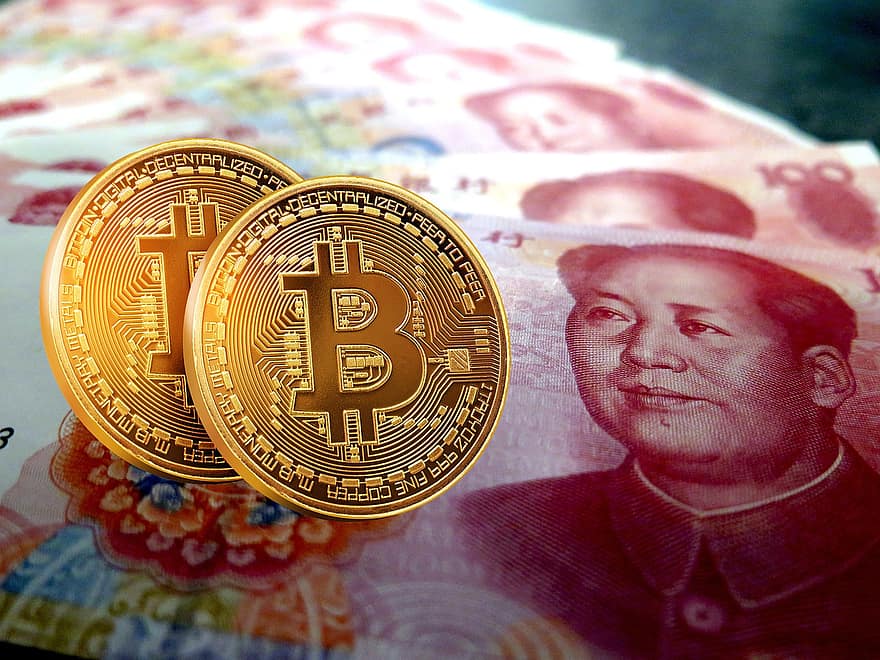China’s military is trying to determine how best to weaponize Blockchain to launch grey zone attacks for cyber and information warfare.
Daniel Wagner
The strategic competition between America and China is about the two countries’ companies, brands, and ability to influence the future. The country that has the most control of the functioning of the systems that govern commerce and communications will undoubtedly be the most important and influential. While the United States has no national strategy for the development of Blockchain, the Chinese government believes that it can be the first to build a Blockchain system it controls. In so doing, it will be able to use technology to expand its influence and undermine the Western system of governance.
The Chinese government’s Blockchain strategy has been to invest heavily in Blockchain development, innovation, and implementation, while cracking down on Blockchain systems it cannot control. The Chinese government has invested billions of dollars in Blockchain partnerships with Chinese firms and China has filed more patents than any other country, by far. Between 2014 and 2019, China’s patent office—the National Intellectual Property Administration—filed 2,218 Blockchain patents, compared with the US Patent and Trademark Office, which filed just 227. Beijing has also signed memorandums of understanding regarding Blockchain research with numerous countries, including Brazil, India, Russia, and South Africa.
Blockchain technology is consistent with the Chinese military’s “grey zone” paradigm, wherein ambiguity about whether international treaties and norms have been violated is unclear. That makes it ideal for use in espionage, data manipulation, and potentially impenetrable security protocols. China’s military—People’s Liberation Army—is trying to determine how best to weaponize Blockchain to launch grey zone attacks for cyber and information warfare.
The Chinese government has issued regulations requiring the country’s Blockchain companies to collect users’ private data, to make that data available to the government, and to censor user content. Beijing could build a closed Blockchain to manage the flow of funds, goods, and services throughout the BRI. The risk is that as Blockchain evolves, it may turn out not to be the open, transparent system liberal democracies envision, but rather an extension of authoritarian systems of government. At issue are the sanctity of fund transfers, digital communications, and the global supply chain.
If the Chinese government is able to control the way Blockchain is developed and governed, it would be a grave and long-term threat to international economic and national security for governments throughout the world. For that reason, the world’s governments need to view Blockchain as an economic and national security issue. They should support Blockchain technology development and innovation through coordinated interagency and national strategies.
China is light years ahead of most of the rest of the world in deploying digital payment technology. Alipay or WeChat Pay apps are all that is necessary to accomplish almost anything that requires a payment in China; the country is largely already making paper money obsolete. The leap into the future of payments is all the more impressive because China did not have a well-established payment system based on credit cards. As usual, the Chinese government is peering well into the future to understand what the future of payment systems will be later this decade and well beyond.
The Chinese government decided in 2019 to create its own digital currency, the unsexily named Digital Currency/Electronic Payments (DCEP). In so doing, Beijing wants to supplant the US dollar as the world’s reserve currency, but simply establishing the DCEP will not be enough. It must, among other things, first make the yuan fully convertible in the international capital markets and firmly establish the yuan among the world’s core currencies. China’s introduction of the DCEP may indeed end up reducing the dollar’s dominance and promote diversification among the world’s top international currencies. The DCEP could generate significant impact in emerging economies generally, and the member countries of the BRI, contribute toward greater use of currency swap arrangements, and encourage the gradual liberalization of financial markets and capital controls. If the pace with which Beijing has rolled out other grandiose ambitions is any guide, such changes are likely to occur in the current decade.
Although that may seem highly unlikely at this juncture, if Beijing were able to replace the US dollar with the DCEP, it could become an enormous potential form of disruption to the global financial system. As a result of its Blockchain foundation, there will be limitations to just how disruptive the DCEP may become. Blockchain is resilient by design, distributive in nature, and deliberately has no single point of control. That is, until and unless subsequent versions of Blockchain, or other forms of future digital technology, change that. If there was any government that might have an interest in doing so, it is China.
Daniel Wagner is CEO of Country Risk Solutions and author of the new book “The Chinese Vortex: The Belt and Road Initiative and its Impact on the World”.

